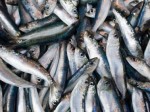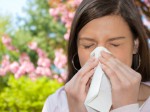 Every day it seems new diets are appearing in the media claiming to be the best method of weight loss.
Every day it seems new diets are appearing in the media claiming to be the best method of weight loss.
Who should we believe when making dietary changes?
Here NZ Broadcasting student Louise Trenouth, on assignment, puts questions to Lea in an effort to understand Fad Dieting
Louise: “Keto diets, Paleo, Intermittent fasting… are all a set way of eating wise. Why do you think it’s become so trendy to eat a certain way?”
Lea: “Many people are desperate to lose weight and some will feel that they have tried “everything” without success. Many want a magic pill and fast results (often with minimal effort) so are willing to try anything offering a new or different method.
For many these diets really can work in the short term because the diet makes the person more mindful of their eating; or may lower their overall calorie or alcohol intake; or increase their normal level of exercise or just make them feel better and more in control of what they are eating and their lives.
However in time, if too restrictive, eating practices become boring, they upset social engagements and can also set up nutrient deficiencies particularly if whole food groups are restricted without replacement.”
Louise: “Many of these diets appear over social media…why is that and does it pose a risk to our health?”
Lea: “Used wisely social media (SM) can inform and speed the delivery of healthy food tips and messages of positivity.
However SM gives everyone a platform and can turn anyone into a celebrity overnight. Irrespective of nutrition qualification or knowledge with enough followers their influence grows. This is not aways a good thing.
SM only tells part of the story. By focusing on superficial appearances rather than health benefits it fails to get to the bottom of the persons real needs. By recommending the same diet for everyone, without accounting for specific needs, it misses the fact that nutritional needs depend on our age, gender, level of exercise, growth etc.
It also assumes that food is the sole cause of the weight issue rather than taking into account other contributing factors such as mental health, income, sleep, working and home environment, behaviour patterns and health problems.”
Louise: “What are the dangers of restricting ourselves diet-wise?”
Lea: “Restrictive eating can over time lead to nutrient and energy deficiency particularly of protein, iron, calcium and Vitamin C and B Group vitamins. This may become apparent in failing mental and physical health and loss of performance. Anxiety and depression can set in along with failing cognitive performance, fatigue and sleep disturbance.”
Louise: “For young people there is a lot of pressure around eating and fitness training. Why is it important to get nutrients and nourishment at this age?”
Lea: “Young people are very vulnerable physically as nutrient deficiencies can affect their growth and mental health. Unsure of their own opinions on popular issues but curious about others views, its easy to just “tune into” the crowd and monitor news feeds on SM and be influenced by them.
SM often plays on peoples “fear of missing out” yet the restrictive eating practices that it often shares does just that.
Restrictive eating can affect growth hormone, sexual maturity, leading to ammenorrhoea (i.e. loss of monthly periods) in girls and loss of muscle, bone health and development in boys.
At a time when exam success is important, cognitive functions become compromised. As mental health fails and disorders in eating become embed, people can loose track of their own talents, goals, close relationships and dreams for the future.
Following the lives of others on SM can be fun but if hanging out for followers themselves young people can waste valuable time, become distracted, stop working on their own lives and risk loosing their own identity and feelings of self worth.”
Louise: “Is the dieting culture getting worse in NZ?”
Lea: It certainly is. Whether we are addressing obesity or malnutrition the scales are not looking favourably balanced either way right now.
On one side we have 66% of adults and 33% of children either overweight or obese making us the third most overweight country in the OECD.1
On the other, it is estimated around 81,500 people in NZ will suffer from an eating disorder during their lifetime of whom around one third will have Annorexia.2
The average age to develop annorexia is 17 years with children as young as 12 also being at risk. Models who twenty years ago weighed eight percent less than the average woman, today weigh 23% less. It is also estimated that around one in four teenage girls may suffer from an eating disorder.3
Louise: With a lot of misinformation out there how do we know what is the right way to be eating and exercising? What needs to change?
Lea: People need to be suspiscous of:
- Diets or people that promise a magic bullet, ingredient or product that will solve weight problems without having to change lifestyle in any way.
- Any program that promises rapid weight loss of more than 1 kg of body fat per week.
- Any diet that promotes the avoidance or severe limitation of whole food groups e.g. wheat or dairy without offering an equally healthy and nutrient dense substitute.
- Diets that promote substituting foods with expensive alternatives, products or large doses of vitamin and mineral supplements.
- Reccommendations that are based on a single study or the sellers own experience or testimonials as these, like SM followers, can be bought.4
To lose weight you need to:
- Eat a nutritionally balanced and varied diet. It doesn’t have to be boring.
- Choose portion sizes that are relevent to your own needs for body growth, repair and exercise. A dietitian can help you with this.
- Be physically active for at least 30-60 minutes/ day.
- Have regular meals, particularly breakfast and ideally eat protein at every meal as this will help to stabilize your blood sugar and energy levels .
- Choose lower fat foods not no fat. If you eat meat choose lean cuts and avoid processed meats such as salami, ham, bacon and sausages. If choosing dairy pick fat reduced products as these have higher levels of calcium and protein than full cream varieties. If choosing non dairy milks pick those of comparable protein content e.g. soy milk.
- Lower your intake of saturated fat (coconut, cream, chocolate, pastry) in favour of unsaturated fat (nuts, seeds, grains, oils, polyunsaturated margarines, fish)
- Fill up on vegetables at main meals and snacks and have 2-3 pieces of fruit each day.
- Mind what you drink. Limit your alcohol, drink plenty of water and aim for 600 mls of milk or milk alternatives/day for muscle and bone health.
- Keeping a diary of your food and fluid intake and total time spent exercising can make you more aware of problem areas and behaviour.
- Recognise that wellness is not just about weight but also having sufficient sleep, finding a balance between work and rest, developing your talents and creating a purposeful life shared with others to stay connected.
Louise: How do you think things would change if social media was out of the picture? Who do we trust?
Lea: People will always be trying to sell things so SM will just be replaced by something else.
We need more:
- Nutrition education in schools and the community that respects diversity and the needs of different age, ethnic and income groups. Current efforts to teach children about sustainability through the “Garden to Table” and Love Food Hate Waste initatives are good examples of work already underway for children but classes for adults are also needed.
- Recognition that just because we all eat or someone has a doctorate after their name it doesn’t mean that PhD was in nutrition and dietetics or that they have sufficient knowledge of clinical and applied nutrition to advise people on what they should eat in order to treat health problems.
- Authenticity. It’s important to find some one you can trust and build a rapport with. Dietitians are the only profession in NZ who are regulated by the Ministry of Health and Dietitians Board of NZ; are bound by a Code of Conduct; have an annual accreditition and continuing education program to ensure that their credentials keep pace with nutrition research and evidence based practice. Like with any profession they vary in age and experience.
The word “Dietitian” might not sound exciting or sexy over social media but their advice might just save your life one day.
Check out the video:Unpacked Issues:Fitness Fads by Louise Trenouth and Oliver Cowan
For more articles by Lea on similar topics:
Are you afraid of the scales?
7 myths of weight loss
Orthorexia: when healthy food can make you sick
Healthy at every size (HAES): the debate
Don’t let energy deficiency ruin your health
Unlock your potential with food
Dietitian and Nutritionist what’s the difference
References:
1.MOH Policy and information on obesity in NZ
2.MOH Statistics on obesity and overweight in NZ
3. Eating Disorders Help available in NZ
4. Fad Diets: British Dietetic Association































































Leave a Reply